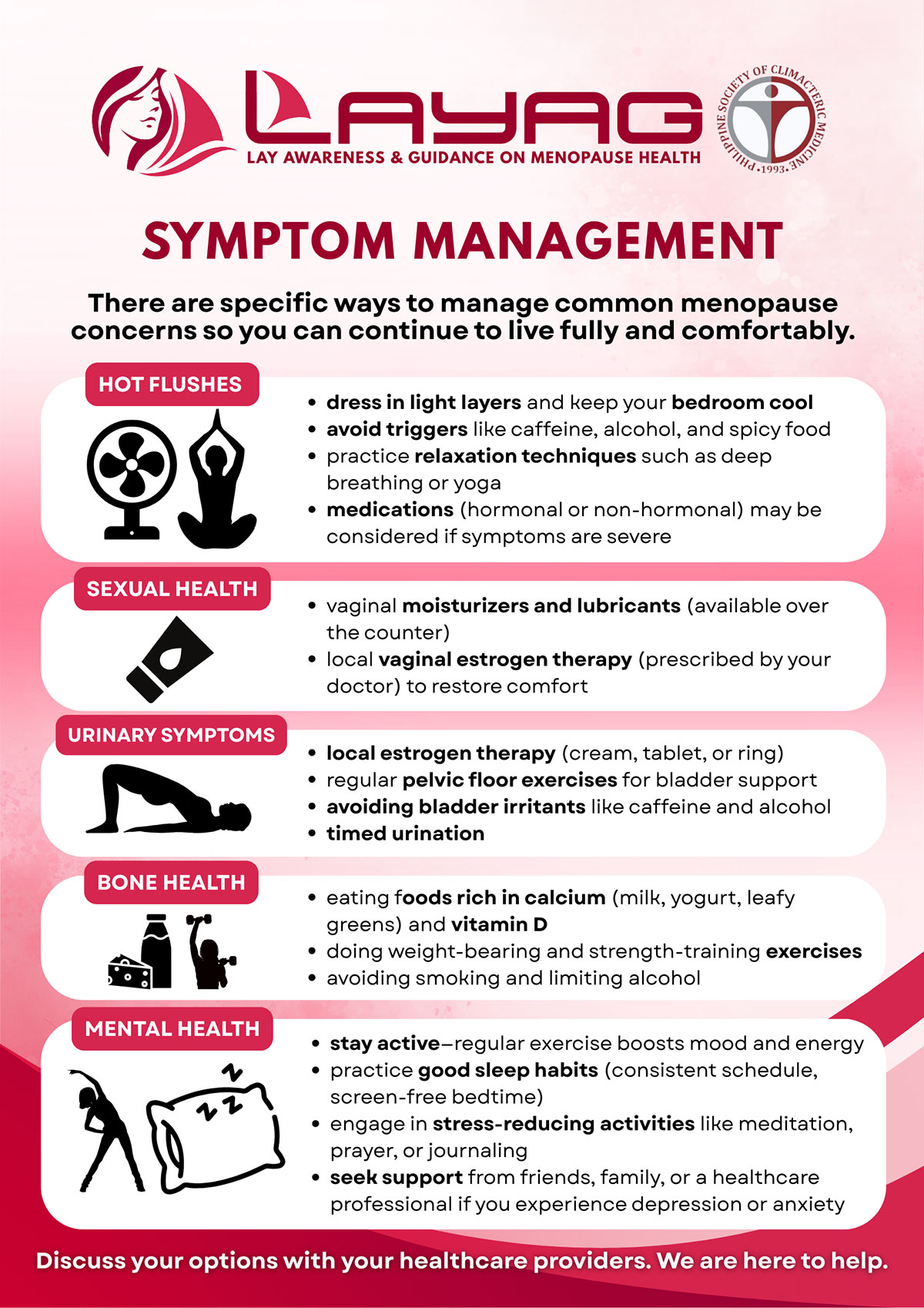Symptom-specific management
Menopause is a natural life stage, but the changes in hormones can bring symptoms that affect daily life and long-term health. The good news is that there are specific ways to manage common menopause concerns, so you can continue to live fully and comfortably.
Hot Flushes
Hot flushes and night sweats are among the most common menopause symptoms. To manage them:
- Dress in light layers and keep your bedroom cool.
- Avoid triggers like caffeine, alcohol, and spicy food.
- Practice relaxation techniques such as deep breathing or yoga.
- Medications (hormonal or non-hormonal) may be considered if symptoms are severe.
Sexual Health
Lower estrogen can cause vaginal dryness and discomfort during intimacy. Solutions include:
- Vaginal moisturizers and lubricants (available over the counter).
- Local vaginal estrogen therapy (prescribed by your doctor) to restore comfort.
Open communication with your partner and seeking guidance from your healthcare provider.
Genitourinary Syndrome of Menopause (GSM)
GSM refers to changes in the vagina, bladder, and urinary tract after menopause. Symptoms may include dryness, itching, painful sex, or frequent urinary infections. Management may include:
- Vaginal moisturizers or lubricants.
- Local estrogen therapy (cream, tablet, or ring).
- Regular pelvic floor exercises for bladder support.
- Lifestyle changes can help. Bladder training exercises, avoiding bladder irritants like caffeine and alcohol, and timed urination can help with urinary frequency and urgency.
Bone Health
With menopause, the risk of osteoporosis and fractures increases. Protect your bones by:
- Eating foods rich in calcium (milk, yogurt, leafy greens) and vitamin D.
- Doing weight-bearing and strength-training exercises.
- Avoiding smoking and limiting alcohol.
Asking your doctor about bone density tests and medications if you’re at higher risk.
Mental Health
Hormone changes can affect mood, sleep, and memory. To support your mental well-being:
- Stay active—regular exercise boosts mood and energy.
- Practice good sleep habits (consistent schedule, screen-free bedtime).
- Engage in stress-reducing activities like meditation, prayer, or journaling.
- Seek support from friends, family, or a healthcare professional if you experience depression or anxiety.
Why This Matters
Menopause is different for every woman, but you don’t have to manage symptoms alone. With lifestyle changes, treatments, and support, you can take charge of your health and enjoy this new chapter of life with confidence.



